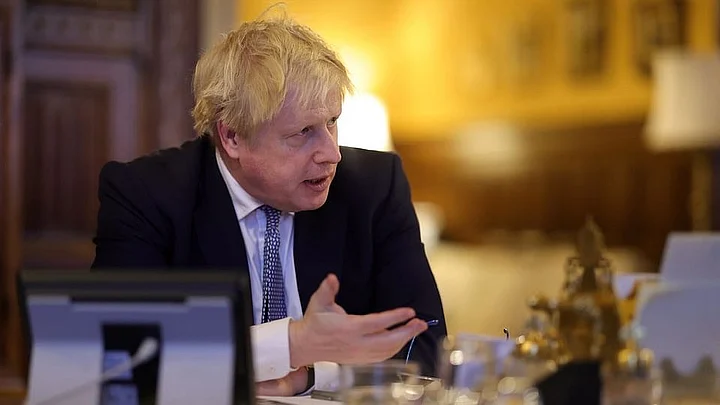British Prime Minister Boris Johnson on Wednesday, 6 July, vowed to stay in power despite the resignations of top Cabinet ministers and several junior officials, who stated their inability to serve under Johnson.
AP quoted Johnson speaking to lawmakers, who said that “he job of a prime minister in difficult circumstances, when you’ve been handed a colossal mandate, is to keep going.”
Following the resignations of five lawmakers, including Treasury chief Rishi Sunak and Health Secretary Sajid Javid, Johnson’s government has been shaken.
The members of Parliament resigned and claimed that they could no longer support Johnson due to his handling of ethics scandals, including the appointment of Chris Pincher as Deputy Chief Whip, despite Johnson belatedly admitting to known that Pincher was found to have behaved inappropriately in 2019.
While the PM rapidly replaced the two men, resignations by a string of junior ministers have further shaken the government.
Moreover, the attempt by opponents to change party rules which allow a new no-confidence vote could further oust Johnson. The prime minister was the subject of such a vote last month, which he survived with 41% of votes against him.
Johnson also has to navigate two public grilling sessions: the weekly Prime Minister’s Questions session in parliament and an interrogation by a committee of senior lawmakers, AP reported.
On Wednesday, Economic Secretary to the Treasury and City Minister John Glen, Minister of State at the Ministry of Justice Victoria Atkins, Parliamentary Private Secretary (PPS) to the Department of Business, Felicity Buchan, British Minister for Children and Families Will Quince and Laura Trott, a lawmaker belonging to Prime Minister Boris Johnson's Conservative Party, all resigned from the British government.
(With inputs from AP)
(At The Quint, we question everything. Play an active role in shaping our journalism by becoming a member today.)
